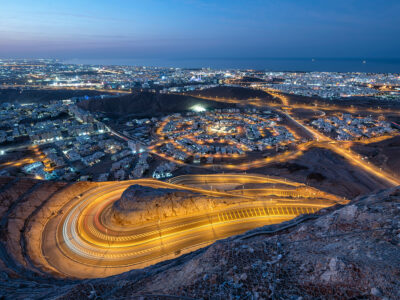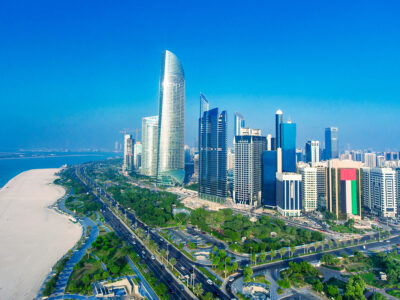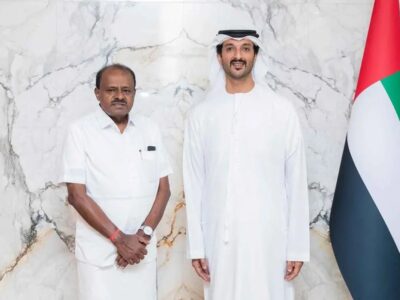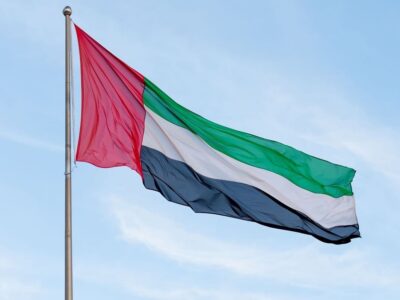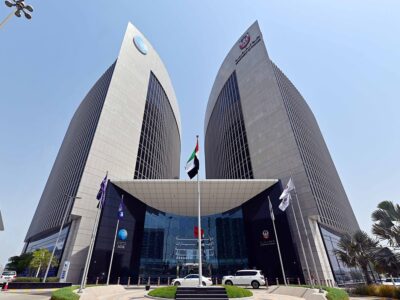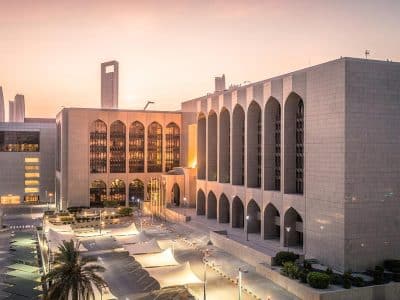“I worry about my country, I worry about my reserves, I worry about the sustainability of Kuwait.”
It is a frank admission for a government official but Kuwait’s Finance Minister and Deputy Prime Minister Anas Khaled Al Saleh faces a weighty task: to radically alter the economic structure of the most oil-dependent Gulf state.
Hydrocarbons make up more than 90 percent of Kuwait’s state revenues and the country is the fifth largest member of the Organization of the Petroleum Exporting Countries (OPEC) according to oil production.
Yet Kuwait has been the slowest to enact game-changing reforms to diversify its economy — despite persistent warnings from analysts for as many as five years. The complacency is partially due to the country’s more than $500bn in fiscal reserves, perceived as a relative safety net, and the lowest breakeven oil price in the GCC ($47.7 per barrel for 2017).
As so many analysts, including the International Monetary Fund (IMF), warned years in advance, Kuwait fell into deficit in 2015 for the first time since 1999. The shortfall of $15bn has since ballooned further to a forecast $25.9bn for the 2017-18 fiscal year, which began on April 1, although that is less than the $28bn in 2016-17.
In an exclusive interview with Arabian Business in Kuwait City, Al Saleh, who has been in control of the country’s finances since 2014, says previous limp efforts to reduce oil dependence must be sharpened and, finally, brought to fruition.

The World Bank says Kuwait’s key challenges include the need to ensure fiscal sustainability, improving natural resource wealth management and economic diversification.
“Having large reserves and large revenues probably meant [earlier] governments were not dealing seriously with the structural issue we have in our economy,” he says.
“We still have 90 percent of our revenues coming from oil. Like many GCC states, we are oil dependent and this is definitely not sustainable. But we are dealing with it now and we are dealing with it even if the oil price goes back up to $100 per barrel. I’ve been saying this everywhere. Every time I see a microphone I make [this pledge].”
Arabian Business meets Al Saleh at his office in the government headquarters, surrounded by his fleet of model dhows. A keen fisherman, the warm and personable minister treats us to a tour of his collection following our interview, his first with a non-Kuwaiti publication since his appointment.
Al Saleh previously served as minister of commerce and industry, and in 2015 was promoted to Deputy Prime Minister of Kuwait. He acted as oil minister last year, and his other credentials include serving as chairman of Kuwait’s $500bn sovereign wealth fund Kuwait Investment Agency (KIA), and as a governor of Islamic Development Bank.
A graduate of Portland State University in the US, Al Saleh has devised a package of fiscal reforms he hopes will change Kuwait’s economic make-up for good.
“There is no doubt we are faced with a fiscal deficit after many years of comfortable surplus. [The low oil price] has slashed my revenues so you can imagine the issues I am dealing with,” he says, a quiet appeal for recognition of the mammoth task he faces.
“As a minister of finance there are two main challenges I have to wake up to and deal with every day. The first is the short-term challenge, to close down the deficit, and the other is the medium to long-term one, diversifying the economy.

Kuwait’s 2017/2018 budget is based on a “conservative” oil price of $45 per barrel.
“On the first, we are doing well. We have a set of reforms we are now revamping to be more efficient. We’ve been in contact with industry associations from accounting, law, economics and other sectors to take long-term views on what is required, because we have to build up a consensus that reforms are necessary.
“I have been very firm in saying there can be no backtracking, the reforms are going ahead.”
The first version of the National Program for Fiscal and Economic Sustainability (FES) was published in March 2016 and includes measures such as subsidy cuts, which had already been partially implemented. The five-year plan to 2021 sets out reforms categorised into four areas: improving government efficiency by cutting public spending while prioritising capital spending; reducing expenditure by capping departmental budgets and rationalising subsidies; shrinking the public sector wage bill; and diversifying public revenues by growing the private sector.
Specific decisions included restricting the formation of new government entities, reviewing compensation for existing entities’ board members and capping budgets at regional, as well as central, level. The programme has started to yield positive results, such as $3.6bn in savings from budgeted to actual expenditure for the last fiscal year, according to the Ministry of Finance.
Like other Gulf states, Kuwait has cut electricity, water and fuel subsidies as part of its reform plan, including hiking the cost of petrol by up to 80 percent, which caused a political crisis that led to parliament being dissolved in 2016. Last week, Kuwait’s appeals court ruled the petrol decision was in line with the state constitution, overturning an earlier judgment by a lower court. However, the topic of subsidy reform continues to be thorny.
Kuwait has also begun looking at alternative means of raising finance, such as its $8bn debut international bond issue in March, for which orders totalled a reported $29bn.
Despite such progress, the IMF claimed in November that Kuwait would need $114bn to finance its deficit over the next six years. So Al Saleh is now preparing to publish a revised version of the FES in the next few weeks, in what he says will achieve further efficiencies and improve the business environment.

Kuwait’s subsidy cuts for petrol, electricity and water, in response to the decline in oil prices, have been controversial.
He tells Arabian Business its focus is on achieving greater efficiencies within government — “tightening belts within the house rather than touching the pockets of citizens”.
There are no plans to extend controversial subsidy cuts, he says; instead, government entities will face tighter fiscal constraints, such as a ban on signing leases for new office space.
“I am saying to departments, it’s top to bottom now, this is your budget, give me your priorities,” Al Saleh says.
The programme also includes measures to help grow the private sector, particularly through public-private-partnerships (PPPs), such as the Az-Zour North power plant last year. Three more PPPs are planned for 2017, including the Az-Zour North Plant II, Umm Al Hayman wastewater treatment plant, and a solid waste management plant in Kabd.
Kuwait is also embarking on a nationwide privatisation strategy. Al Saleh says the privatisation of three state assets — Kuwait International Airport, Sabiya power plant and the country’s fixed telecoms network — is expected to commence this year. The government also plans to sell minority stakes in several units of state oil producer Kuwait Petroleum.
Other reforms are aimed at improving the business environment, with a long-awaited insolvency law to be passed in the coming weeks; an amendment enacted this month to remove capital requirements for new businesses; and a decision to slash fees for corporate licensing renewals.
“We are doing everything possible to enhance our ranking in the World Bank’s Ease of Doing Business report [from 101st in 2016, compared to 26th for the UAE],” Al Saleh says.
The revised plan is intended to help close the deficit “tremendously”, shrinking the shortfall by at least $3bn annually over the next five years, with a targeted budget ceiling of $65.7bn each year to 2020, Al Saleh says. The plan is expected to support the New Kuwait 2035 economic diversification plan while maintaining the country’s Aa2 sovereign credit rating.

The privatisation of government assets, which include Kuwait Airways and Sabiya power plant, are expected to begin this year.
“Whatever we do our eyes are on that,” he says, referring to the additional borrowing costs that come with poor sovereign ratings.
Despite his concern over Kuwait’s long-term fiscal sustainability, the minister insists he is not panicking. “Our reserves have given us a strong backbone to face the headwinds coming in. I am not panicking, I am not rushing.”
Yet this attitude could be the reason Kuwait is in its current predicament.
The IMF warned Kuwait in 2014 that it needed to contain a rapid rise in public spending and that a deficit was inevitable. Last November, the IMF again called on the country to make spending cuts.
Al Saleh concedes the government could “definitely” have done more to prevent a shortfall. But he also claims the IMF has criticised the country’s conservative budgeting by not considering the revenues transferred into the Kuwait Future Generations Fund, managed by KIA, which account for a minimum of 10 percent of total revenues each year.
“[The IMF] thinks our deficit is worse than it is because we are maintaining this transfer. We essentially make the deficit worse. Even if it is KD4bn ($13bn) we don’t care if it becomes KD5bn, we continue to support our citizens for the future.”
He argues KIA’s investments — “made overseas for prudency and diversification” — further temper his anxiety about the budget shortfall and support his reasoning that there is no need to impose further cuts on the general public.
“Our reserves are just over $500bn and KIA has been [generating] average annual growth of 6.9 percent. If it does only 3 percent, I will still pay my deficit in the next five years,” Al Saleh explains. “Having said that, we don’t want to rely on [that income stream]. We want to benefit from the drop in oil prices and use it to implement reforms for sustainability.”
For that reason, Al Saleh assumed a conservative average oil price of $45 per barrel when drawing up his budget, even though crude oil is now averaging about $55 a barrel. He has projected spending at $65.3bn over the next fiscal year and revenues at $43.7bn.
The minister is also optimistic about foreign investor interest in Kuwait — total foreign direct investment was $1.18bn last year, a 29 percent increase from $920m in 2015. High levels of demand for Kuwait’s recent bond sale is further evidence of investor interest, says Al Saleh.

The privatisation of government assets, which include Kuwait Airways and Sabiya power plant, are expected to begin this year.
“We were overwhelmed with demand from quality names and the book quickly filled up. We got a spread [calculation] of 75 [basis points] over five years — unheard of in the GCC.”
Kuwait is drafting a law to permit the issuance of longer-term bonds — up to 30 years compared to the five- and 10-year debt issued in March. Al Saleh reveals such a bond could be issued in 2018, at a smaller scale, possibly with some Islamic instruments, too.
“Our plan is to be a rational prudent borrower and continue to be in the market over the coming years, even after we close our deficit. We want to build up a proper sovereign yield curve and help corporates back home to benefit from that,” he says. “We also want to explore new financing instruments for our budget rather than financing it from our reserves.”
Under the proposals, the legislation will permit the government to borrow up to $65.7bn over 20 years; the current ceiling is $32.8bn. Al Saleh says other planned legislation such as the insolvency law will encourage businesses to set up in Kuwait.
However, as the only semi-democratic Gulf state, Kuwait has struggled to push through reforms. With ministers appointed by the Emir, elected MPs are often more willing to oppose or challenge government proposals, which critics view as holding up legislation, particularly compared to Kuwait’s neighbours. MPs’ opposition to subsidy cuts and other new fees saw the Emir sack the entire parliament last year. Al Saleh’s 2017/18 budget has yet to be approved by parliament despite being scheduled to pass on April 1.
“I won’t deny it is slower to make decisions in Kuwait than other Gulf states because we have democracy,” he says.
“But this has never been a concern. We’ve had parliament for 50 years and are still learning the art of negotiation and building a consensus. Once we build up a decision both sides agree on, it is definitely going to be a much stronger, more solid, prudent decision.
“Have you asked yourself why we’ve been able to build up these strong reserves where others haven’t? It’s because we have a prudent, democratic management system… and made sure we don’t spend everything we have.”
Still, the parliamentary process has at times resulted in the country falling behind its GCC peers. Kuwait drafted its insolvency law years before the UAE did, but the UAE enacted its own version far quicker. Kuwait has also been slow in upgrading infrastructure such as its crumbling airport (a redevelopment of which is now under construction). Does Al Saleh fear competition within the Gulf?

Kuwait’s finance ministry has shelved plans to introduce corporation tax.
“If you’re asking me this because our airport is not as advanced as others, well, we are doing it now, but this is not what concerns me. Look at our ‘beneath-the-ground’ infrastructure [pipeworks, roads] — I don’t think anywhere in the GCC is one like ours,” he contends.
“If I were an investor who could go anywhere in the GCC, I would want to make sure the country has a strong legislative body that ensures government does not do hunky-bunky [dodgy] business and there are the right checks and balances in place. I would want a three-tier constitution with executive body, legislative body and judicial body. Kuwait has a court that even rejects the decisions of the Emir, this does not happen everywhere.”
However, he admits he has shelved plans to introduce corporation tax, fearing it could place Kuwait at a competitive disadvantage unless all of the GCC states impose it simultaneously. That is what the union is doing with a value-added tax (VAT) due to be implemented from January 1, 2018.
Al Saleh cautions against presuming the VAT will bring about significant fiscal change in Kuwait. Again, he says his present focus is top-down government rationalisation. “I wouldn’t lean on [VAT] too much. There is so much tightening we can do within the system that would pay us more.
“The procedures we are issuing in the new plan include more efficient tightening that will not hurt our tummies too much, but hopefully make sure we do not overeat.”
The analogy could be applied to other Gulf countries that have accumulated wealth due to high oil prices and are now having to make changes to rebalance their economies. But, for Kuwait, the journey is especially steep and Al Saleh’s favourite word — “prudent” — is all the more appropriate.
